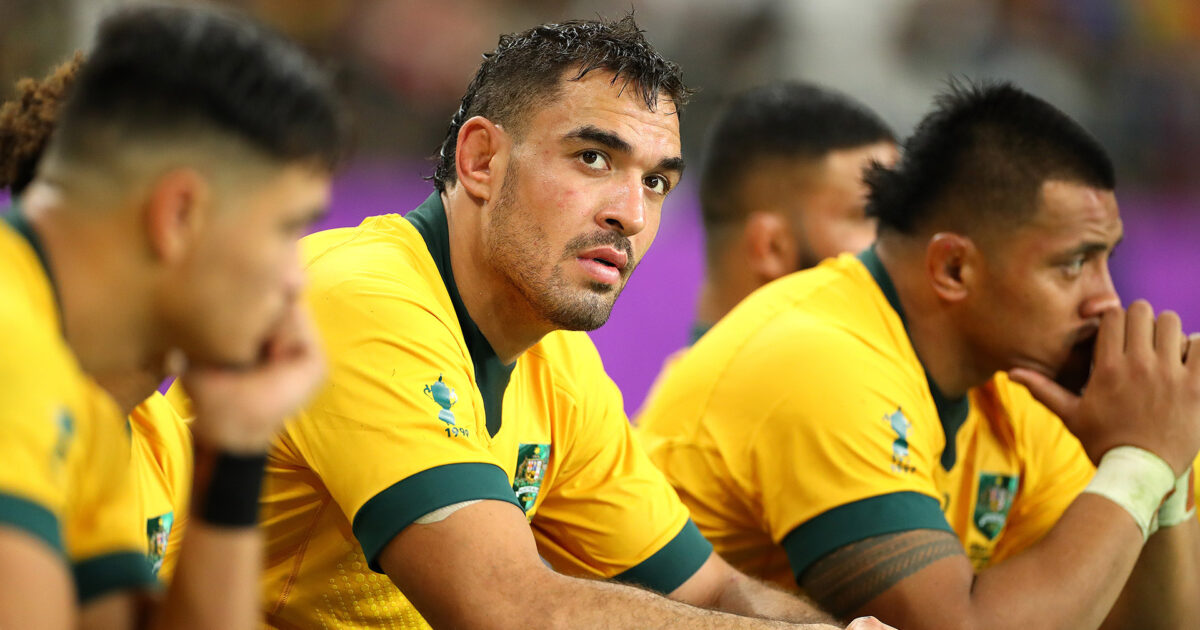'Those three men will only add to that': Wallabies added to strengths with selections

The Wallabies’ 37-man squad named to head to Japan before voyaging onward to the northern hemisphere was missing a few emerging starlets.
Most notably, No 8 Harry Wilson, a breakout star last year, flanker Fraser McReight and flyhalf Noah Lolesio, who started all three tests against the All Blacks, were left back at home to continue their development and ensure they had a full pre-season heading into 2022.
Those selection decisions by Australia head coach Dave Rennie certainly raised a few eyebrows, but a former All Black says those decisions have been made with an eye to the future.
Speaking on the Aotearoa Rugby Pod, James Parsons explained that leaving Wilson, McReight and Lolesio behind in Australia is a clever ploy that enables the trio to develop their game and bring experienced figures into the Wallabies set-up.
“One thing Dave Rennie knows and that’s developing players and bringing them along in their career, and I suppose giving them the opportunity to be the best that they can be for a sustained period of time,” Parsons said.
“He’s also sending a message I believe, which is key in this Wallabies team, which is nothing is given, nothing’s guaranteed, everything is earned.
“It’s a big factor in creating depth and a want to stay in the Australian Super environment to give yourself an opportunity to represent the Wallabies, who seem to be trending in a direction of improvement and potentially setting themselves to be contenders in 2023.
“I don’t want to put that pressure on them because it’s not fair, and they won’t think they are there yet, but these are the sort of signs, the characteristics and mindset of the squad that could be key.
“It gives them an opportunity to bring in some experience from overseas to replace them.”
The omission of the youngsters was countered by the addition of some older, exiled Wallabies, who may have thought their international careers were done when they moved to Europe.
After test rugby absences of between two and five years, Rory Arnold, Will Skelton and Tolu Latu, who are all based in France, were picked in Rennie’s squad, despite none of them meeting the 60-cap threshold under the Giteau Law.
The exemptions from Rugby Australia have come at a time with the Wallabies on the rise, reaching third place on the world rankings after four straight wins to end the Rugby Championship.
“Arnold, Skelton and Latu have played a lot of rugby in Aussie and now a lot of rugby up in Europe,” Parsons, who played two tests for the All Blacks between 2014 and 2016, told the Aotearoa Rugby Pod.
“What they can bring against these northern hemisphere teams is huge, and by huge, I don’t mean in terms of passing on knowledge, but also in mass, size, and getting that dominance in those collision areas, in an area that seems to have been perfected since Dave Rennie has been in there.
“Their willingness to commit to those breakdowns, their maul defence, their lineout and scrum is improving. Those three men will only add to that and pass on a lot of knowledge that they can bring back into their Super squads into next year.”
Crusaders and Maori All Blacks halfback Bryn Hall added the Wallabies will be targeting four wins from four on their end-of-year tour, but noted that Rennie will ultimately want a continuation of the plans they have in place and consistent performances.
“I think having four good test matches and four wins, it will be a goal of theirs,” Hall told the Aotearoa Rugby Pod.
“Dave Rennie will want to see growth every single week, every single game they are playing.
“What they have done really well is marry up their two styles of play. When they do have the ball on attack, they been able to be clinical when they have those opportunities to score or take the points.
“With their new phase attack, being above to rove and ask questions of the defence, it’s going to be a flow on of that, being able to execute under pressure against the likes of Wales and England, traditionally good defensive teams.
“That’s what they will see. They’d love to go four from four in that series, but I think it is just a continuation of whatever game they are playing.”
Parsons agreed that they will be wanting to go undefeated, but the former Blues captain set the pass mark at three from four for Rennie’s side.
“I think three out of four, they will be going for four out of four,” Parsons said.
“But obviously their big tests will come against Scotland, Wales and England. If they drop one of those games, it’s not the end of the world but it does set them up nicely going into next season.”
Listen to the full episode of this week’s Aotearoa Rugby Pod below:



























































